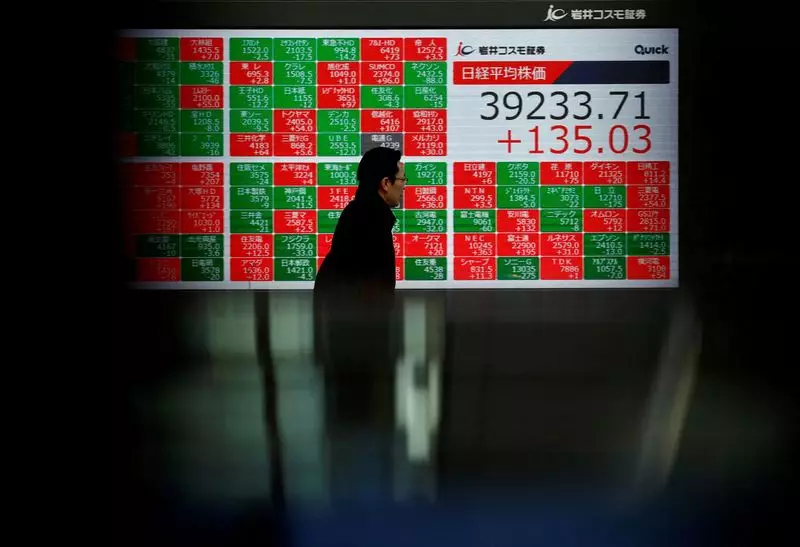Asian share markets have displayed resilience in the face of economic events and uncertainties in recent times, with the Nikkei reaching new highs. Investors are closely monitoring central bank events and major data releases that are expected to influence market sentiment and future policy decisions around interest rates.
Federal Reserve Chair Jerome Powell’s upcoming testimony before lawmakers is a significant event that could provide insight into the Fed’s policy stance. Analysts anticipate Powell to maintain a cautious approach, especially considering recent inflation surprises. The release of the February payrolls report also looms large, with expectations of a solid rise following a strong performance in January.
The European Central Bank meeting scheduled for Thursday is expected to keep rates steady at 4.0%, but a downward revision in inflation outlook could hint at potential rate cuts in the future. Market analysts are predicting a dovish yet cautious tone from the ECB, signaling a possible rate cut in June. The Bank of Canada is also anticipated to maintain its current stance, with the first rate cut potentially taking place later in the year.
The Nikkei’s record-breaking climb and the positive performance of the S&P 500 and Nasdaq futures reflect overall optimism in the markets. However, concerns about a potential market correction linger, given the significant gains witnessed in recent times. Analysts are pointing to a shift towards sustainable efficiency and productivity gains driven by automation and AI, signaling a new era for market growth.
In currency markets, the dollar’s performance has been mixed, influenced by various economic indicators. The Japanese yen’s strength ahead of the Tokyo consumer price data release underscores the market’s sensitivity to inflation data. Gold prices have surged to a two-month high, reflecting investors’ flight to safe-haven assets amidst economic uncertainties.
Oil prices have remained relatively stable, with OPEC+ members extending voluntary output cuts into the second quarter. This agreement, led by key producers such as Saudi Arabia and Russia, demonstrates efforts to stabilize global oil markets amidst supply-demand dynamics. Brent crude and U.S. crude prices have shown minor fluctuations, highlighting the delicate balance in the oil market.
Asian share markets are navigating through a complex web of economic events and policy decisions that have far-reaching implications. Investors are closely monitoring central bank actions, economic data releases, and geopolitical developments to stay ahead of market trends. The resilience displayed by Asian markets amidst global uncertainties underscores the adaptability and dynamism of the region’s financial landscape.

